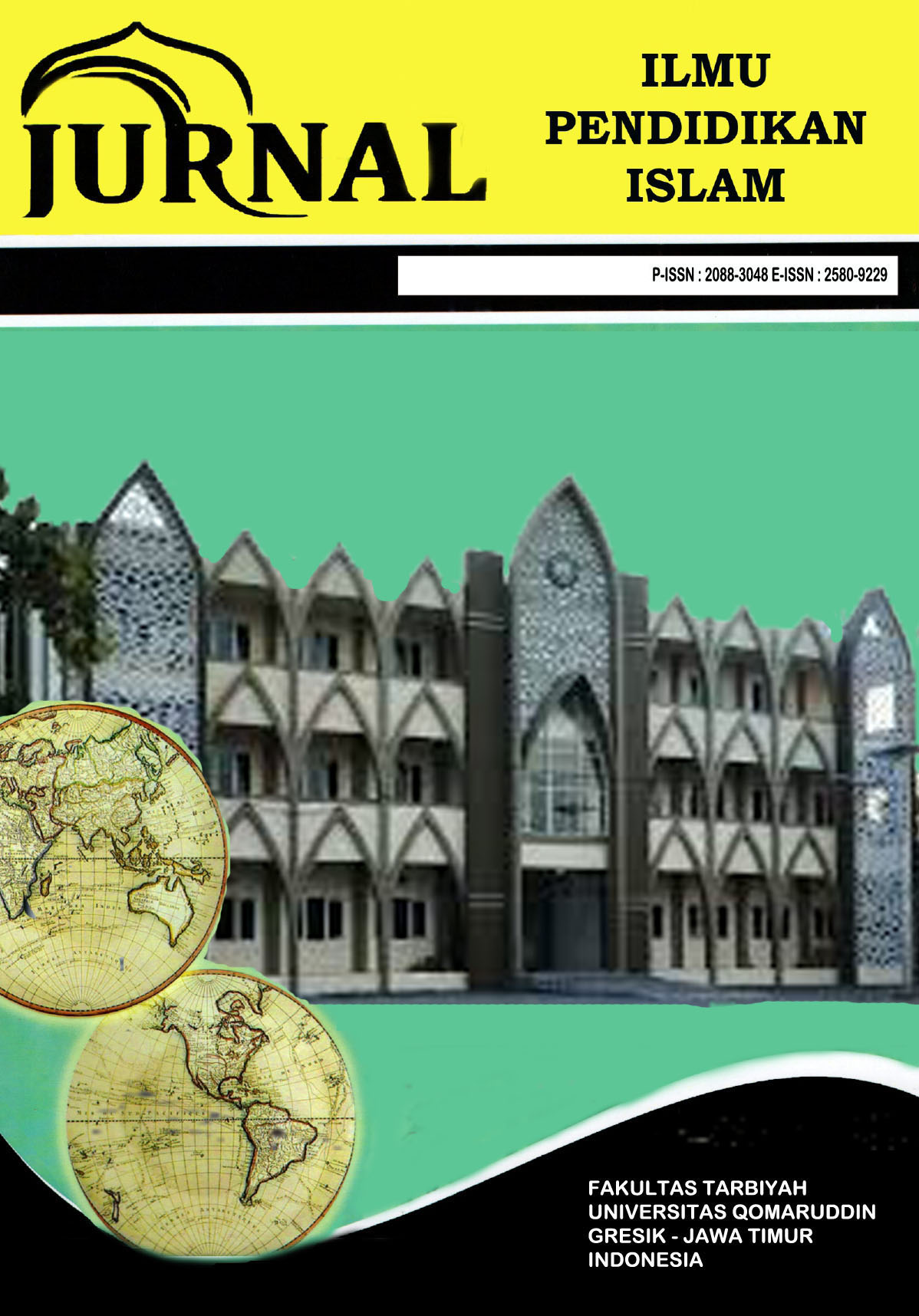IMPLEMENTASI KURIKULUM PENDIDIKAN AGAMA ISLAM DI PONDOK PESANTREN BAITUL BURHAN
Abstract
Islamic religious education in traditional islamic boarding schools involves the formation of an educational educational system that includes academic, moral and cultural education. Moral education at salaf islamic boarding schools includes the moral development of teenagers by applying the teaching of islamic religious education in the moral development of teenagers this research aims to determine the curriculum objectives, structure, content/material, learning methods and evaluation of PAI learning, especially at the Baitul Burhan Islamic Boarding School. This research uses a descriptive qualitative research approach using case study or field research methods. Data collected through observation, interviews and documentation at the Baitul Burhan Islamic boarding school. In general, there are two objectives of islamic religious education at the Baitul Burhan Islamic Boarding School, namely instructional objectives. Learning materials include nahwu sharaf, fiqih, tauhid, tafsir, tasawuf, and hadist. There are two methods used, namely Bandungan, and Sorogan. Three methods of evaluation are used at the Baitul Burhan Islamic Boarding School, namely semester exams, book reading exams, and memorization. Achieving the goals of a curriculum is determined by how teachers manage and develop the curriculum through an effective and efficient learning process, so that they can produce graduates who are devoted to God Almighty, capable of using technology and information, produktive, creative, innovative and have a high work ethic.
References
Ardiansyah, D., & Basuki, B. (2023). Implementasi Nilai-nilai Kesalehan Sosial di Pondok
Pesantren dalam Menghadapi Era Society 5.0. Jurnal Inovasi Pendidikan, 1(2), 64–81.
https://doi.org/10.60132/jip.v1i2.16
El-Yunusi, M. Y. M. (2023). Eksistensi Kurikulum Pesantren Sebagai Sub-Sistem Pendidikan
Nasional (Konteks Kasus Pondok Modern Gontor Ponorogo). Jurnal Kependidikan Islam,
Volume 13(Nomor 1), 30–43. https://doi.org/0.15642/jkpi.2023.13.1.30-43
Mahadi, U. (2021). Komunikasi Pendidikan (Urgensi Komunikasi Efektif dalam Proses
Pembelajaran). JOPPAS: Journal of Public Policy and Administration Silampari, 2(2), 80–90.
https://doi.org/10.31539/joppa.v2i2.2385
Mata, P., Tarkib, K., & Di, I. I. (2020). Kitab Turats Sebagai Solusi Efektifitas. 499–514.
Nabila, R., Islam, U., & Mataram, N. (2023). Development of Herbarium-Based Learning Media for the
Classification of Living Organisms in Grade VII at Pondok Pesantren Darunnadwah Development of
Herbarium-Based Learning Media for the Classification of Living Organisms in Grade VII at Pondok
Pesantren Darunnadwah. September. https://doi.org/10.59890/ijeps.v1i2.331
Rahmawati, S. (2020). Karakteristik Program Kurikulum Pondok Pesantren. Al-Mau’izhoh, 2(1),
–86. https://doi.org/10.31949/am.v2i1.2078
Rahmawati, S. T. (2020). IMPELMENTASI KURIKULUM MUATAN LOKAL DALAM
MENCAPAI TARGET HAFALAN AL- QUR ’ AN 4 JUZ DI SD ISLAM ANNAJAH
JAKARTA BARAT
Rusli, R., & Sugiarto, A. (2022). Peran Ormas Islam Dan Lembaga Pendidikan Islam Dalam
Mewujudkan Moderasi Islam Di Indonesia The Role Of Islamic Organs And Islamic
Educational Al-Hasanah : Jurnal Pendidikan Agama Islam Al-Hasanah : Jurnal Pendidikan
Agama Islam. Jurnal Pendidikan Agama Islam, 7, 255–280.
Sista, T. R., & Al-baqi, S. (2018). Implementasi Pendidikan Agama Islam dalam Pembinaan
Moral Remaja ( Studi Kasus di Pesantren Modern Muadalah dan Pesantren
Salaf/Tradisional ). At-Ta’dib, 13(2), 154–167.
https://core.ac.uk/download/pdf/235572859.pdf
Syafe’i, I. (2017). Model Kurikulum Pesantren Salafiyah dalam Perspektif Multikultural. AlTadzkiyyah:
Jurnal Pendidikan Islam, 8(2), 127. https://doi.org/10.24042/atjpi.v8i2.2121
Copyright (c) 2024 Yadi Fahmi Arifudin, Dea Nurkholifah, Siti Jaenab, Tri Damayanti

This work is licensed under a Creative Commons Attribution 4.0 International License.





